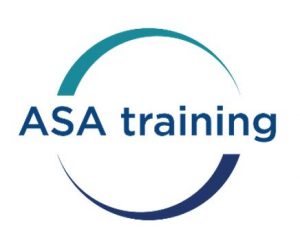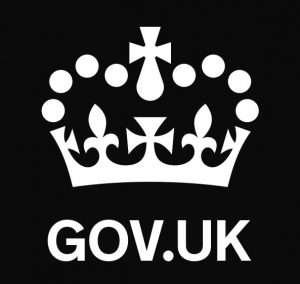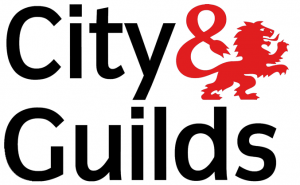Introduction
We have both a grievance procedure and a bullying and harassment procedure in place to enable you to lodge a grievance relating to your own employment. The whistle-blowing policy is intended to cover other serious concerns which fall with the Public Interest Disclosure Act 1998. We are committed to running our business with honesty and integrity and within the restraints of the law. As such whilst legislation protects you from suffering a detriment at work if you take a matter to a relevant outside body, we would hope that you would feel able to bring any concerns you may have to the attention of the Directors with confidence that any such concern would be dealt with appropriately and swiftly and without any fear of reprisal, even if your belief of wrongdoing turns out to be unfounded as the result of a thorough investigation.
Whistle Blowing is the everyday term used to describe a disclosure made to someone in authority alleging corruption, malpractice or wrongdoing on the part of another person. In employment whistle blowing refers to an employee (“whistle blower”) making a disclosure about a colleagues conduct in the course of employment, or about employer’s practices The Legal Position Employees and workers who make a ‘protected disclosure’ are protected from being treated badly or being dismissed as a result of making the disclosure.
The Act offers protection to any person who makes a disclosure relating to the following serious offences:-
- Criminal offences
- Risks to health and safety
- Failure to comply with a legal obligation
- A miscarriage of justice
- Environmental damage
- Abuse of a service user
For a disclosure to be protected it must be made to an appropriate body. For example, disclosing a health and safety issue to the Health and Safety Executive is likely to be protected, but not if the concern was disclosed to the media. The raising of a concern will be covered by this policy provided you have a reasonable belief that the disclosure is made in the public interest.
Scope
This policy applies to:
- Everyone who works for the organisation, on a paid or unpaid basis, including any temporary
staff or contractors who may provide services to ASA Training
- Employers, witnesses and supporting mentors to any learners
- Learners enrolled with ASA Training
Individuals can raise an issue with ASA Training under the arrangements outlined in this policy if they have a reasonable belief that malpractice and/or a wrongdoing is occurring or is likely to occur and they should have a reasonable belief that the disclosure is in the public interest.
Why
We have a duty under the GDC standards of professionalism.
Duty of candour states that health and care professionals must “tell the person (or, where appropriate, their advocate, carer or family) when something has gone wrong.
The GDC’s Standards for the Dental Team already require dentists and dental care professionals to:
- Put patients’ interests first (principle one);
- Be honest and act with integrity (standard 1.3)
However, candour means being open and honest with all patients, whether they have made a
complaint or not.
Procedure
We are committed to the highest possible standards of operation. In line with that commitment we encourage you to consider raising the matter with the Head of Quality & Apprenticeships or the Senior Business Manager before taking the matter to an outside body. We will take all such concerns seriously and any individual raising legitimate concerns under this policy will not be subjected to any detriment either during or after employment. All such concerns raised will be thoroughly investigated and appropriate action taken accordingly.
Steps:
- Initial concern reported in writing to Head of Quality & Apprenticeships or Senior Business Manager
- Concern to be investigated within 14 working days
- Meeting with whistleblower to disseminate findings/outcome
- Report of investigation
- If concern is mitigated, case is closed
- If concern is upheld, we will adhere to relevant governing body policy/procedure and escalate
Safeguarding Complaints
We recognise that the decision to report a concern can be a difficult one to make and we will support you during the process. We will not tolerate any harassment or victimisation (including informal pressures) and will take appropriate action to protect you when you raise a concern to us in good faith. Every effort will be made to keep the identity of the whistle blower who makes a disclosure under this policy confidential, at least until a formal investigation is under way. In order to ensure that a fair investigation can take place the whistle blower will also be expected to keep the fact that they have raised a concern, the nature of the concern and the identity of those involved confidential.
It may be that during an investigation, disciplinary or legal proceedings that the company no longer maintains the whistle blowers confidentiality. If that does occur then the company will endeavour to notify the whistle blower in advance.
Employee Handbook Issue 1 ٠ (September 2021) Page 25 Produced & supported by Avensure Ltd:
Untrue Allegations If you make an allegation, but it is not confirmed by the investigation, no action will be taken against you. If, however, you make an allegation maliciously, vexatious, or for personal gain, disciplinary action may be taken against you and, dependent upon the circumstances, this may be treated as Gross Misconduct.
Point of contact for all whistleblowing reports:
Claire Lamb – Head of Quality & Apprenticeships – claire@asatraining.co.uk
John Turner – Senior Business Manager – john@asatraining.co.uk
Copy of Whistleblowing log:
| Date
|
Nature of concern | Name of investigator | Steps taken to action concern
|
Case closed or escalated |







